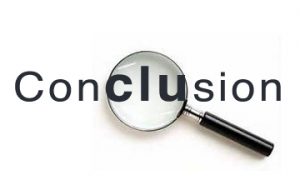Vaccines don’t cost much but why are fewer people taking them? For people under the age of 65 it costs under $20 in most places like Costco and Walgreens. It’s even free if you are use Medicare or Medicaid. They are scientifically proven to fight influenza but for some reason a lot of people claim it is unsafe.
It is amazing how many people refuse to take vaccinations. What’s even more amazing is where they get their information. You would think that anti-vax believers get their information from credible sources like scientific studies but the answer is a prevailing no: they get information from online comments.
People Believe Online Comments
 Want to know how more and more people are buying the concept that vaccines are bad? Believe it or not but they don’t get sold on it through media outlets and PSA’s; they believe vaccines are unsafe because they read a comment on a YouTube video or at a website.
Want to know how more and more people are buying the concept that vaccines are bad? Believe it or not but they don’t get sold on it through media outlets and PSA’s; they believe vaccines are unsafe because they read a comment on a YouTube video or at a website.
That’s not hyperbole either because a new study published by Journal of Advertising proved it. The authors of the study took several volunteers and conducted two experiments to determine whether the people would believe a credible source or be affected by the comments section.
Details of the First Study
The first study was simple: the participants would be shown a PSA video of either a representative of the CDC or the anti-vaccine National Vaccine Information Center. After watching the video, they would be shown comments that would either disagree or agree with the content of the video.
Following this the participants would be given a questionnaire asking if they would take a vaccination or not. They also had to jot down their opinions on vaccinations after going through the video and comments.
Surprisingly, many of the participants were influenced by the comments. Remember that they do not know who these comments come from, what their credentials are, or what their evidence is to support their claim but so many people believe what they have to say.
Details of the Second Study
The second test was similar except this time the people commenting on the video had a little introduction such as “I’m a certified doctor who worked at…” or “I’m an English literature student” or “I am a health care lobbyist”.
Once again, more people believed what the comment section had than the actual content of the video, especially when it was the mock doctor commenting.
The Disturbing Conclusion
 This is very disturbing.The people making these vaccines, perfecting them, and promoting them are from the CDC. These are trained doctors who have over ten years of education and even more years of experience in the field. They have every diploma and certificate to prove they know exactly what they are saying.
This is very disturbing.The people making these vaccines, perfecting them, and promoting them are from the CDC. These are trained doctors who have over ten years of education and even more years of experience in the field. They have every diploma and certificate to prove they know exactly what they are saying.
However, people often believe the random strangers they come across on the Internet simply because of a line like “Don’t believe this video. I’m a doctor and I know this is wrong.”
There is no proof that the person commenting is a real doctor or that they have factual data to prove their claim but people buy these statements anyway.
The authors of the study related these findings to how word of mouth works. People are more likely to believe word of mouth than advertisements. This is why people don’t listen to restaurant ads and instead turn to Yelp reviews for a better opinion.
What the study proves is that this mentality also extends to public service announcements. Even when all the facts are laid out in front of a person, the strength of word of mouth statements – in this case, video comments – can sway a person’s mind and influence their opinions regarding an important matter.
Read the Fine Line
For your sake it is important to avoid buying into everything you read on the comments section. Again, the people commenting do not prove their credibility and their sources of information. They could be random strangers just making stuff up either because they want to or because they truly believe what they are posting.
Never let random comments on the Internet influence you whether you should take the flu vaccine or not. If you have kids then it is very important for them to take flu shots because it is their best defense to stay healthy during the flu season.
PSA videos often show their sources. They show the name of the person speaking in the video so you can follow-up and do a background-check for credibility.
These videos aren’t there for propaganda. They are there so that families can stay safe from diseases. There are so many sources out there claiming vaccines are unsafe and unnecessary but if your source for buying into this propaganda is because of a random comment on YouTube, you might want to rethink about your choices.


